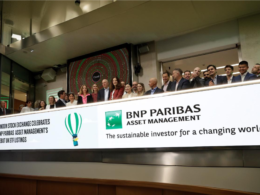A recent study by Goldman Sachs Group Inc. reveals that fund managers are increasingly incorporating oil, gas, and mining stocks into ESG-registered portfolios. This shift aligns with a re-evaluation of environmental, social, and governance (ESG) strategies, allowing ESG investors to include assets that may become green in the future, even if they aren’t currently. This trend also follows sustained criticism from the US Republican Party, which has accused the ESG industry of excluding fossil fuels.
Goldman’s research focused on funds registered under the European Union’s Sustainable Finance Disclosure Regulation (SFDR), the world’s largest ESG investing framework. SFDR categorises sustainable funds into Article 8 (broadest) and Article 9 (strictest). The study found that fund managers now hold more oil, gas, and mining stocks than they did a year ago.
Among Article 8 funds which covers over $7 trillion of assets 51% now include at least one oil and gas company, up from 47% last year. For metals and mining, 46% of Article 8 funds hold at least one company in this sector, compared to 32% for Article 9 funds. This represents an increase of about 5% to 6% from the previous year, as per Goldman’s analysis.
Despite ESG funds remaining generally underweight in commodities, Goldman analysts, including Evan Tylenda and Grace Chen, noted a growing willingness to invest in metals and mining companies. They also observed a slight increase in ESG fund ownership of oil and gas stocks.
The SFDR is currently undergoing a major overhaul after an extensive consultation period. The revised version is expected to facilitate transition investing, allowing fund managers to hold previously controversial assets if they can demonstrate that such holdings are improving their ESG profile.
According to Goldman analysts, the evolving ESG regulatory landscape in Europe “will spark the advent of improved mainstreaming of transition/improver funds as credible sustainability strategies, which could drive flows towards companies traditionally excluded.”





















